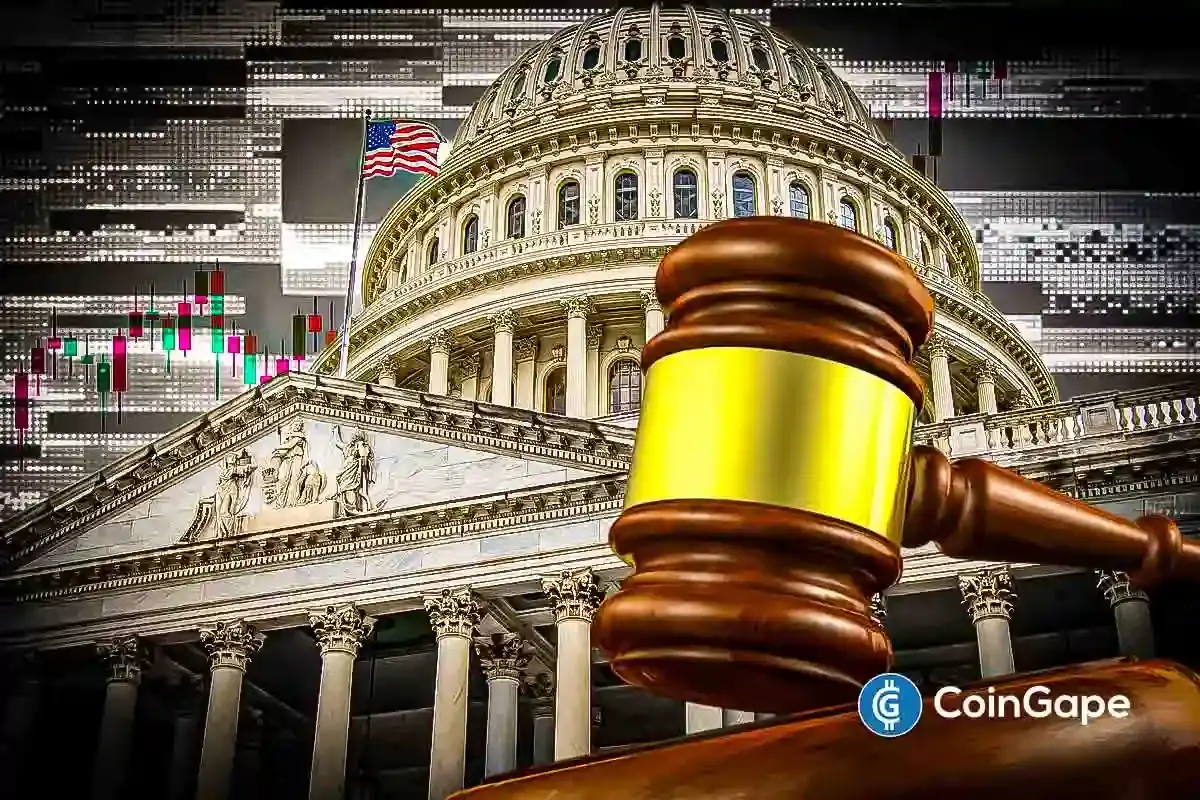Coinbase Fights SEC Use of Default Judgment in Ongoing Lawsuit

Highlights
- Coinbase disputes SEC's default judgment tactic, highlighting flaws in obtaining rulings without contest.
- Legal battle underscores the contentious interpretation of crypto as securities by SEC, based on 1946 Howey Test.
- Ripple case nuances complicate SEC's classification of crypto assets.
Coinbase, in an ongoing legal tussle with the Securities and Exchange Commission (SEC), has expressed its opposition to the SEC’s attempt to use a default judgment from a separate insider trading case to strengthen its lawsuit against the exchange.
The SEC had indicated its desire to inform the court of a default judgment that deemed the trading of certain crypto assets on secondary markets as securities transactions. This move by the SEC and Coinbase’s subsequent response underscores the escalating legal scrutiny surrounding cryptocurrency regulation in the United States.
Legal Context and Coinbase’s Opposition
The controversy centers on the most recent court ruling of an insider trading case in which Sameer Ramani, a friend of former Coinbase product manager Ishan Wahi, was involved. The court’s ruling in the default judgment in the absence of Ramani declared some crypto assets trading as securities transactions. In this regard, the SEC aimed to use this ruling in its lawsuit with Coinbase for operating as an unregistered exchange, broker, and clearing agency.
In its filing, Coinbase argued the admissibility and the weight of the default judgment, stressing the fact that the judgment was gotten without any contest from the defendant, Ramani, who is suspected to have left the country. Coinbase’s legal team argued that the manner in which the ruling was obtained should cause it to undermine its relevance in the context of the SEC’s lawsuit against Coinbase.
In addition, Coinbase emphasized the nonappearance of the Ripple matter and transactions on the secondary market analysis in the SEC’s default judgment motion, showing possible flaws in the regulator’s reasoning.
Implications for the Cryptocurrency Industry
This legal battle between Coinbase and the SEC moreover reflects the widespread regulation problems to which the whole cryptocurrency industry is exposed. The SEC’s interpretation of crypto assets as securities, based on the Howey Test—a framework from a 1946 Supreme Court case—has been a point of contention.
In addition, the Ripple case, mentioned by Coinbase in its opposition, provided the crypto industry with a nuanced perspective on how crypto sales to institutional versus retail investors might be treated under securities law, further complicating the regulatory landscape.
The verdict of the lawsuit filed by Coinbase against the SEC’s utilization of the default judgment in the court, as a result, will serve as the precedent for the classification and regulation of crypto assets in the future. A ruling in favor of the SEC could bolster the agency’s stance on the need for stricter regulatory oversight of crypto exchanges and assets, potentially leading to significant shifts in how crypto businesses operate within the U.S. Conversely, if Coinbase’s challenge is successful, it may embolden the crypto industry to push back against regulatory measures perceived as overreaching.
Read Also: Binance US Faces SEC Scrutiny Over Customer Assets
Play 10,000+ Casino Games at BC Game with Ease
- Instant Deposits And Withdrawals
- Crypto Casino And Sports Betting
- Exclusive Bonuses And Rewards

- Meme Coin Market Dead? Top 5 Reasons Dogecoin, Shiba Inu, and Pepe Are Crashing
- Why Is Crypto Market Crashing Today (Feb 28)
- Breaking: Ethereum Price Drops Amid Israel-Iran Tensions; Machi Big Brother Liquidated Again
- CLARITY Act: Stablecoin Yield Debate Heats Up, but March 1 Deadline Not ‘Do or Die’
- Best Institutional Custody Solutions for Tokenized Assets in 2026
- Top Analyst Predicts Pi Network Price Bottom, Flags Key Catalysts
- Will Ethereum Price Hold $1,900 Level After Five Weeks of $563M ETF Selling?
- Top 2 Price Predictions Ethereum and Solana Ahead of March 1 Clarity Act Stablecoin Deadline
- Pi Network Price Prediction Ahead of Protocol Upgrades Deadline on March 1
- XRP Price Outlook As Jane Street Lawsuit Sparks Shift in Morning Sell-Off Trend
- Dogecoin, Cardano, and Chainlink Price Prediction As Crypto Market Rebounds

 Buy $GGs
Buy $GGs

















